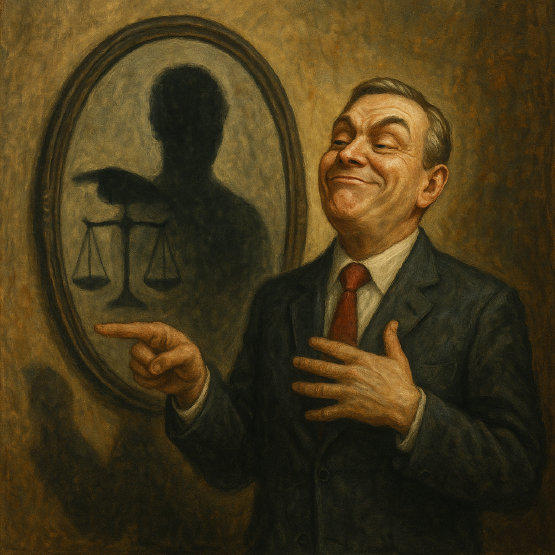For a Mirror Without Shadows - Reflections on Power, Morality, and Social Responsibility
Reflection on the Nature of Power
Today in 2025, we stand at a historical threshold where we must reflect again on the nature of power and its psychological mechanisms. Power is more than force held by an individual or a group it is a deep structure that permeates society and functions as an intangible influence. Particularly, its dark side—corruption, avoidance of responsibility, moral deviation—remains as a legacy that transcends individual deviance, impacting institutions and generations, casting long and deep shadows over all our lives.
Psychological Mechanisms and the Self-Defense of Powerholders
Behind the operation of such power lies a psychological mechanism known as 'self-denial' and 'moral distortion'. The inner world of those in power creates a psychological structure to defend themselves from the conflict between their actions and self-image. This is referred to as 'self-denial'. It is sometimes expressed as "I was only doing my best," and at other times as the reasoning that "it was unavoidable for the survival of the organization." This psychological strategy of justifying one's misconduct is a form of self-rationalization aimed at preserving one's moral self, while also serving as a means to deceive others and society.
Moral Dissonance and Responsibility Avoidance
Moreover, those in power often make painless choices amidst 'moral dissonance.' When their internal ethics clash with their actions in reality, they seek stability by minimizing or ignoring moral judgments. This psychological avoidance soon leads to evasion of responsibility, concealing their actions under the pretext of 'serving the public good.' At that moment, power transforms from a tool for the common good into a means of self-justification.
Structural Pathology of Corruption
This psychological structure extends beyond the individual and permeates society as a whole. The moral distortion of power dulls the moral standards of society, and corruption becomes a structural pathology that is reproduced across generations. The phenomenon where corruption committed by a certain power elite continues to the next generation through institutions and kinship—so-called 'inherited absurdity of power'—clearly illustrates how persistently and deeply the shadow of power stains society.
Recovery of the Function of the Social Mirror
In order to confront this structure, we must restore the function of the social 'mirror.' The media, civil society, and the legal profession are all parts of that mirror. The media should be a transparent light that exposes the illusions of power, while civil society must maintain the health of the public sphere through constant monitoring and voicing. The legal profession must function as the last bastion of justice through fair judgments and accountability. However, the barriers of reality that hinder these roles are still high.
Shadows of the Past and New Moral Standards
Therefore, true responsibility starts with confronting the shadows of the past. Even if it is painful, we need the courage to reveal, rather than hide, our wrongdoings. On that foundation, we must establish new moral standards and social norms. Standing in front of the mirror, we must no longer turn away but face the truth. This is the starting point of transparency and accountability, and the first step toward a just society.
Possibilities of Technology and Ethical Standards
When looking to the future, we must also pay attention to the potential of technology. Artificial intelligence, big data, and blockchain can be powerful tools in monitoring power and detecting fraud. These technologies can function not only as means of surveillance but also as a foundation for increasing the accountability of power and the reliability of institutions. However, technology alone is not enough. For technology to operate justly, it must be accompanied by the ethics of those who operate it and the oversight of the community.
The Importance of Education and the Role of Citizens
The most important thing is education. Raising a generation with mature civic awareness and ethical responsibility is the most fundamental and sustainable way to monitor and check power. Responsible citizens are not just observers they are practitioners of social justice and agents who establish ethical standards for power.
Reflection on the Future of Power and Morality
Ultimately, the issues of power and morality serve as a measure of our collective maturity and the level of our solidarity. Even in this moment, we must gaze into the 'mirror.' We should reflect on both our inner selves and the structure of society, continuously striving toward a more transparent and just society.
Hope of a Mirror Without Shadows
The shadow of power is long and dark, but when everyone tries to erase that shadow together, we will finally be able to face the 'mirror without shadows.' The face of society reflected in that mirror is the outline of the future we must create, and it will be the first light of an ideal world where truth and responsibility come alive.

Post a Comment